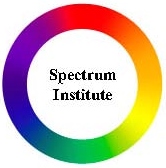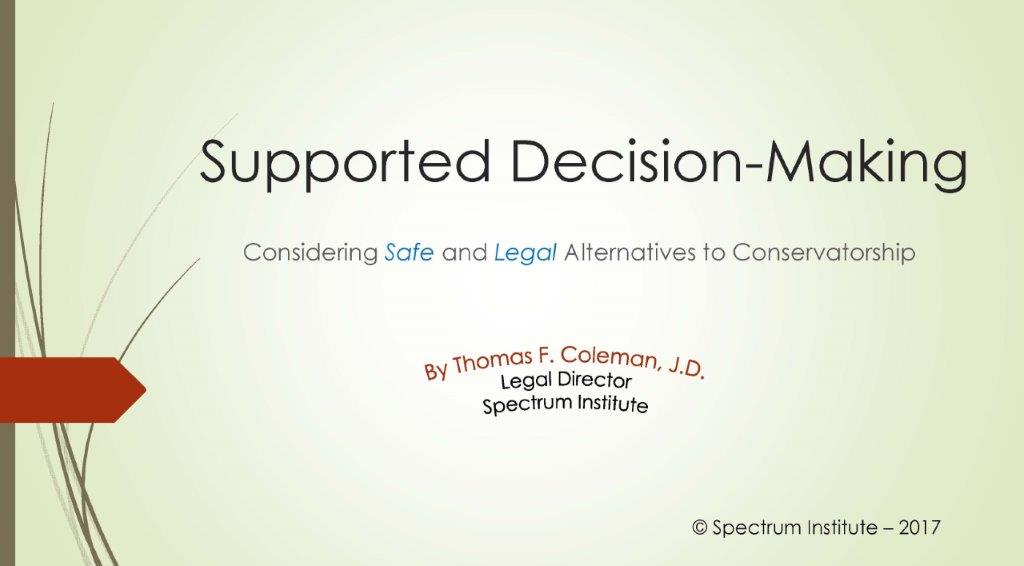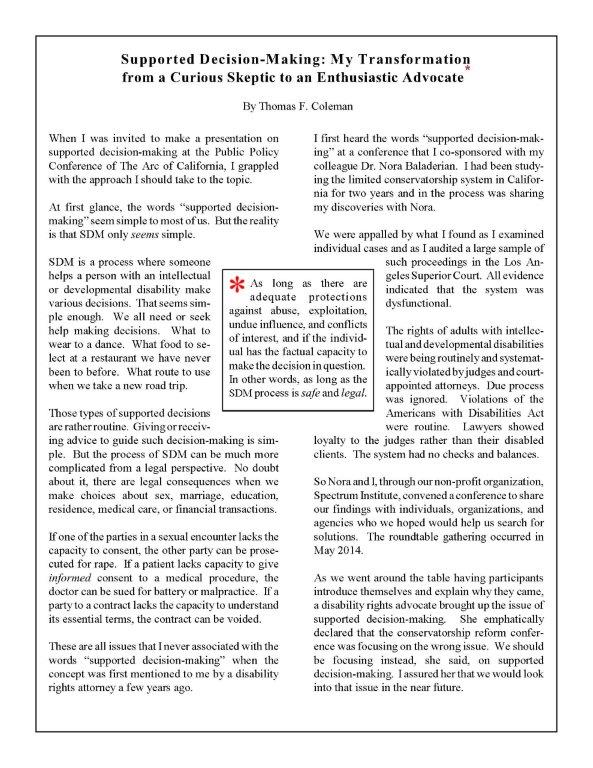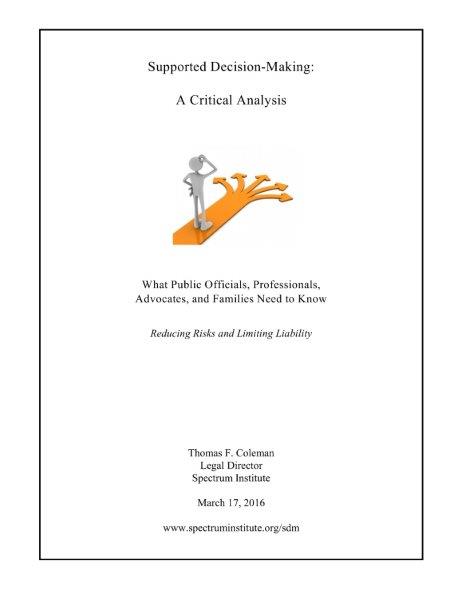|
|
|||
|
|
|||
| Powerpoint | Commentary | Report | References* |
|
The concept of supported decision-making is being promoted by many disability rights advocates and organizations as an alternative to guardianship. Supported decision-making, or SDM for short, rests on a philosophy that, with proper supports and services, every person can make his or her own decisions. Some SDM proponents reject the concept that some individuals may lack the capacity to make some decisions and therefore it may be necessary for a court to appoint another person to make decisions for the person who lacks such capacity. These advocates want guardianship systems abolished and laws using the concept of incapacity repealed. Other SDM proponents see a place for guardianship proceedings, but want less restrictive alternatives used when feasible. Spectrum Institute advocates for SDM if both the process and the result are safe and legal. |
Supported decision-making agreements, and related legal documents such as medical and financial powers of attorney, are being explored by legislators, judges, and professional associations, and at state and national educational conferences. Current literature on the subject generally lacks a sufficient discussion of risks, including in some very sensitive areas of decision-making. There is a place for private contractual arrangements -- which is what SDM and powers of attorney are -- for some seniors and people with disabilities . . . if they have the capacity to understand the nature and consequences of an agreement when it is signed, if there is no undue influence, if they have independent legal counsel to review such documents, and if implementation of an agreement is monitored by a neutral third party. It is important that any SDM process should aim to minimize the risk of abuse and exploitation. |
||
|
The references include some essays
critical of the original version of AB 128 in Nevada. The final bill addressed most of the concerns. |
|||
|
|
|||



